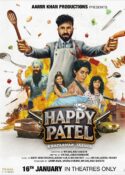 Hansal Mehta discusses his film the hard-hitting drama, Omertà, which released in 2018.
Hansal Mehta discusses his film the hard-hitting drama, Omertà, which released in 2018.
Hansal, seven years of your most controversial film?
Yes, it’s been seven years since Omertà, and strangely, the film feels more urgent now than it did back then. That’s the thing about cautionary tales: we don’t always listen when they’re told. They often get drowned out in the noise of outrage, moral grandstanding, or easy ideological binaries. But the truth lingers. And eventually, reality catches up with fiction.
Would you say, Omertà is your most provocative film?
I didn’t set out to make Omertà to provoke. I made it because I was disturbed—by how evil can be so mundane, how radicalisation isn’t always loud, and how systems—ours included—enable monsters under the guise of politics, diplomacy, or silence.
Wasn’t it risky to show the terrorist urinating while the National anthem is playing and that savage all-nude love-making scene with Rajkummar Rao?
The film was risky, yes. There were severe objections—the anthem scene, the intimacy, the very idea of telling the story of Omar Sheikh without handholding the audience with disclaimers. But cinema can’t always be comfortable. It has to unsettle, or it’s just noise.
Would you be able to make Omertà today?
I don’t know. Maybe I wouldn’t be allowed to release it. Maybe I’d be labelled, boycotted, dissected on prime-time panels. But I do know this: it’s precisely because it’s become harder to make such films that we must keep trying.
Do you object to films being censored beyond a point?
Censorship isn’t just what’s done by the state. It’s also what we do to ourselves when we surrender to fear, applause, or ideology. Omertà was my attempt to resist that. It still is.











